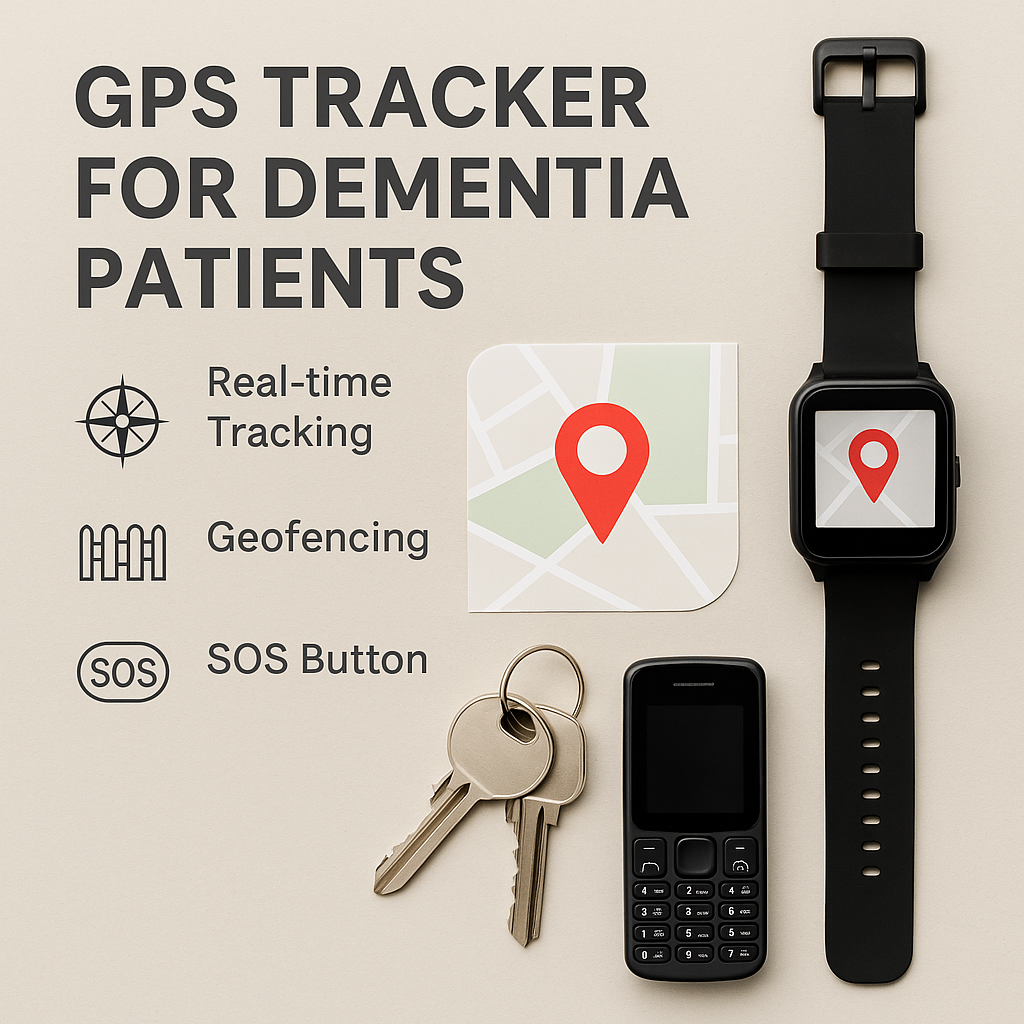Why Use a GPS Tracker for Dementia Patients?
Dementia often causes wandering—and wandering can lead to dangerous situations. GPS trackers provide:
– Real-time location tracking, allowing caregivers to respond quickly
– Geofencing alerts, notifying when a patient exits a designated safe area
– SOS buttons & two-way communication, useful in emergencies
Research-Proven Benefits
A 2024 SAGE study found GPS devices:
– Reduced caregiver stress significantly (Zarit burden score dropped by ~5 points, p < .01)
– Increased patient independence: 55% resumed neighborhood walks
– Boosted caregiver confidence: 97% said it helped monitor their loved one
A 2023 PubMed trial showed:
– Devices are feasible and accepted
– Enhanced independence, reduced police involvement, delayed need for full-time care
An NCBI review also reported:
– Improved outdoor access, reduced caregiver worry, more relaxed relationships
Choosing the Right GPS Tracker
Key features to look for:
1. Battery life – Longer charge means less frequent recharging
2. Geofencing & alerts – Define safe zones like home or neighborhood
3. SOS/fall detection – Ensures help on demand
4. Ease of use – Simple buttons, auto-answer, locking bands
5. Form factor – Options: watch, pendant, shoe insert
6. Subscription cost – Most use cellular networks; expect monthly plans ($20–50)
Top Recommended Devices
– Tranquil GPS Watch – Stylish, waterproof, auto-answer, SOS button, locking strap
– AngelSense – Comfortable wearable or belt clip, automatic two-way audio
– Theora Connect – GPS watch with geofencing, cell calls, tracking app
Ethical & Practical Considerations
– Informed consent: Always involve the person with dementia in choosing to wear a tracker
– Respect & dignity: Explain how the device fosters independence rather than surveillance
– Caregiver training: Familiarize both patient and caregiver with operating the device
Summary: GPS Trackers = Life-Changing Tools
Using a gps tracker for dementia patients supports:
– Safer wandering
– Enhanced autonomy
– Reduced caregiver anxiety
– Faster emergency response
– Delayed need for full-time institutional care
This technology balances safety and freedom, aligning with caregiver and medical best practices.
Trusted Source: GPS Tracking and Dementia (Alzheimer’s Association)


